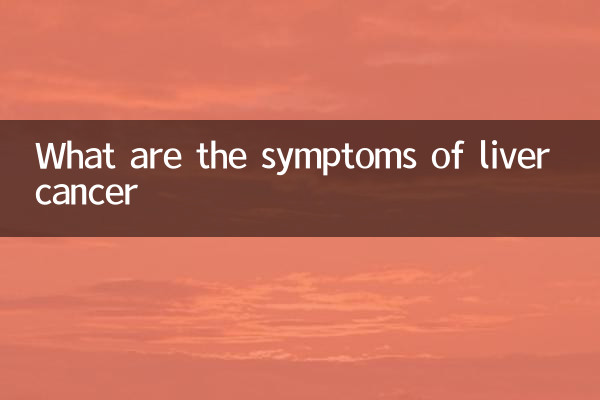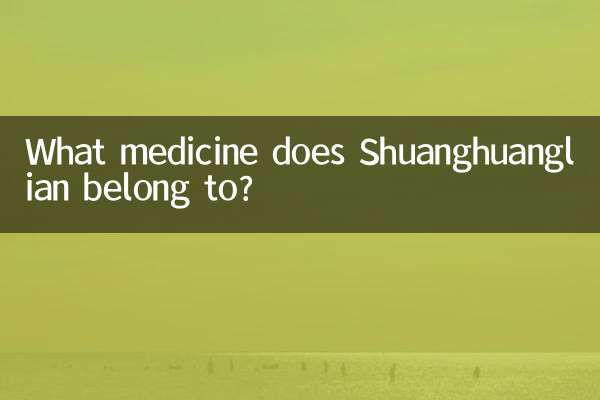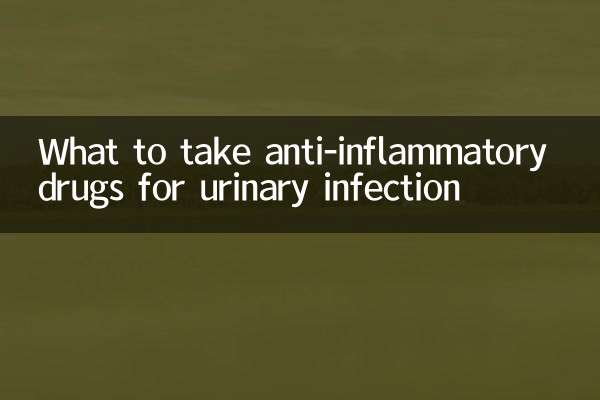What are the symptoms of liver cancer
Liver cancer is a common malignant tumor, and its early symptoms are often not obvious and are easily overlooked. Understanding common symptoms of liver cancer can help early detection and treatment. This article will combine popular topics and hot content in the past 10 days to introduce you in detail the symptoms, risk factors and related data of liver cancer.
1. Common symptoms of liver cancer

The symptoms of liver cancer vary according to the stage of the disease development and may not show any obvious symptoms in the early stage, but as the disease progresses, the following symptoms may gradually appear:
| symptom | describe |
|---|---|
| Pain in the upper right abdomen | The liver is located in the upper right abdomen and can cause persistent or intermittent pain when the tumor is enlarged. |
| Weight loss | Weight loss without obvious reasons may be a sign of liver cancer. |
| Loss of appetite | Patients often feel lost in appetite and even anorexia. |
| Fatigue and fatigue | Patients with liver cancer often feel extremely fatigued and it is difficult to relieve even after rest. |
| jaundice | The yellowing of the skin and whites of the eyes and the darkening of the urine may be related to impaired liver function. |
| Belly bloating | The patient may feel full of abdomen due to ascites or enlarged liver. |
| Nausea and vomiting | Abnormal liver function may lead to digestive discomfort. |
2. People with high risk of liver cancer
The occurrence of liver cancer is related to a variety of factors, and the following groups belong to high-risk groups:
| High-risk groups | Risk factors |
|---|---|
| Patients with chronic hepatitis B or hepatitis C | Viral hepatitis is one of the main causes of liver cancer. |
| Patients with cirrhosis | Cirrhosis is an important pre-stage lesion of liver cancer. |
| Long-term alcoholic | Alcohol can damage the liver and increase the risk of liver cancer. |
| Patients with non-alcoholic fatty liver | Obesity and metabolic syndrome may cause fatty liver, which in turn develops into liver cancer. |
| A positive family history | People with a family history of liver cancer have a higher risk of illness. |
3. Hot topics related to liver cancer in the past 10 days
In light of recent online hot topics, the following topics are closely related to the prevention and treatment of liver cancer:
| Hot Topics | Content Overview |
|---|---|
| New methods for early screening of liver cancer | Researchers have discovered novel biomarkers that can improve the detection rate of early liver cancer. |
| Breakthrough in immunotherapy | PD-1 inhibitors have significant efficacy in the treatment of advanced liver cancer. |
| Promotion of hepatitis B vaccination | Many places have strengthened hepatitis B vaccination to reduce the incidence of liver cancer. |
| Healthy lifestyle prevention of liver cancer | Experts recommend reducing the risk of liver cancer by controlling alcohol, healthy diet and regular exercise. |
4. How to prevent liver cancer?
The key to preventing liver cancer is to reduce liver damage and regular physical examinations:
1.Vaccination with hepatitis B vaccine: Hepatitis B is the main cause of liver cancer, and vaccination can effectively prevent it.
2.Avoid alcohol or limit alcohol: Long-term drinking can damage the liver and increase the risk of liver cancer.
3.Healthy Eating: Reduce the intake of high-fat and high-sugar foods, and eat more vegetables and fruits.
4.Regular physical examinations: High-risk populations should undergo liver function examinations and liver ultrasound screening regularly.
5.Avoid drug abuse: Certain drugs may cause damage to the liver and need to be used under the guidance of a doctor.
5. Summary
The symptoms of liver cancer are diverse and may not be obvious in the early stages, but if symptoms such as pain in the upper right abdomen, weight loss, jaundice, etc. occur, you should seek medical treatment in time. High-risk groups should strengthen prevention and screening, combine a healthy lifestyle to reduce the risk of illness. Recent research on liver cancer has made rapid progress, and breakthroughs in immunotherapy and early screening technologies have brought new hope to patients.

check the details

check the details